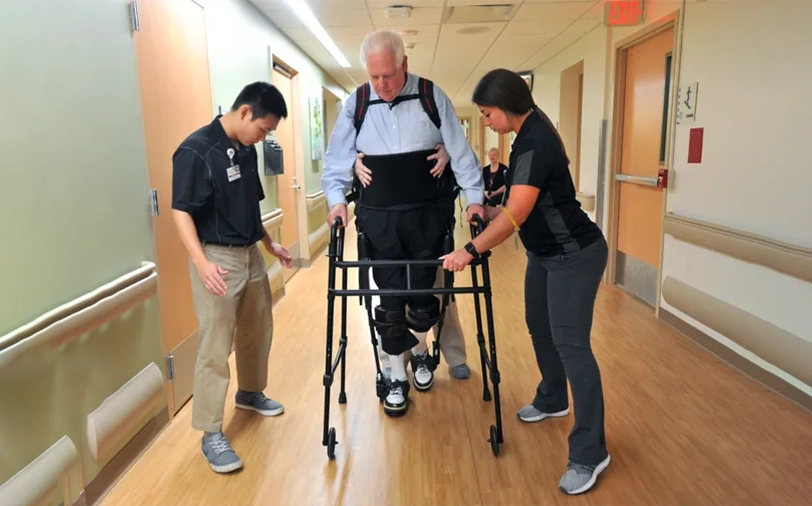Book an Appointment
Call Us+91 9319488481Spinal cord injury is a disabling health issue that can profoundly affect an individual’s life. It happens due to spinal cord damage. Spinal cord is the main nerve channel connecting the brain to the rest of the body. This injury can lead to paralysis, loss of sensation in various parts of the body. It may also affect various body functions, thereby impacting daily activities.
The spinal cord is a complex network of nerve fibers that acts as a relay, passing messages from the brain to other parts of the body and vice versa. Therefore, any damage to the spinal cord can result in the loss of certain functions or complete paralysis, depending on the extent of the injury. The type of impairment depends on the specific location and severity of the damage.

Accidents are the primary cause of spinal cord injuries, mostly resulting from car crashes, falls, and sports. Injuries can also occur from firearm-related incidents or sharp objects like knives. Additionally, diseases such as tumors or infections can also result in spinal cord damage.
The consequences of a spinal cord injury can be diverse. These injuries can impact mobility, functioning of intestinal and urinary systems, the respiratory system, and sensory functions. These effects can significantly impact independence, self-esteem, and overall quality of life of the patient.
Spinal cord injury symptoms vary depending on the extent and location of the injury. Common symptoms include:
Immediate Symptoms
Long-term Symptoms
The long-term effects of spinal cord injury are unpredictable and may vary from individual to individual. Common long-term symptoms include:
Physiotherapy is a very important part of rehabilitation of individuals suffering from spinal cord injuries. It focuses on enabling patients to regain movement, functionality, and independence. Physiotherapy services involve assessing the patient and developing a tailored treatment plan based on their disabilities, needs, and strengths.
This includes addressing emotional and psychological issues and educating patients about their new circumstances.
The Path to Recovery
Spinal cord injuries can be serious. The rehabilitation process for such recovery can be long and challenging. Consistent physiotherapy along with the support of other healthcare specialists is crucial for making significant progress and achieving rehabilitation goals. While there is specific treatment for spinal cord injury, advancements in medicine and physiotherapy have greatly improved patient outcomes.
Spinal cord injury presents a significant challenge for both patients and healthcare professionals. Physiotherapy plays a critical role in rehabilitation, offering hope for improving the quality of life for those affected. Timely and regular physiotherapy is essential to achieving the best possible level of
functionality.
Understanding the complexities of spinal cord injury and the importance of physiotherapy helps to create the optimal conditions for enhancing independence and self-sufficiency in your life.
Q: What is the role of physiotherapy in spinal cord injury rehabilitation?
A: Physiotherapy is crucial for minimizing complications, maximizing functioning, managing pain, improving mobility, and enhancing overall quality of life for individuals with spinal cord injuries.
Q: How long does physiotherapy take for spinal cord injury recovery?
A: The recovery period depends on the severity of the injury. Physiotherapy is a continuous process and the improvements are often seen over months or years.
Q: Can physiotherapy help me regain walking ability after a spinal cord injury?
A: While not always possible, physiotherapy can help in improving mobility and strength, potentially leading to enabling the patient to walk with assistive devices or even independently in some cases.
Q: What kind of exercises are involved in physiotherapy for spinal cord injury?
A: Exercises vary based on the individual's needs and abilities. They may include a range of motion exercises, strengthening exercises, balance training, and functional activities.